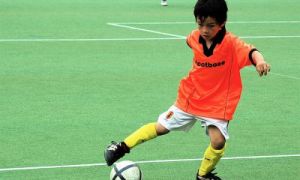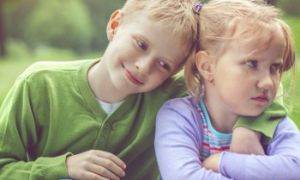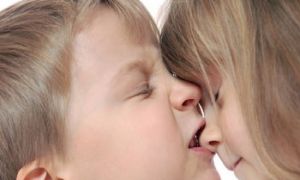To be familiar with nature, to spend some time amid nature, talking, thinking about trees, grasses, pebbles, climates, small insects, ground warm enhance the resilience and self-esteem of a child.
Nature helps a child to be confident, resilient and also makes them happy. Nature helps a child’s development in many ways such as in increase physical health, also enhance social-emotional and intellectual development.
The following shows how nature benefits a child's overall development:
Physical Development Benefits
- Playing in nature, spending time in the natural atmosphere increase the motor skills of a child. Outdoor play and learning enhance body balance and coordination. It also helps to increase agility and strength, helps to increase the immune system which is very essential to be fit and fine, and also burns excess energy.
- Playing in nature helps to maintain BMI and helps to lower body weight. Obesity is a curse for children. Children who play, jump, climb, run in nature help to maintain their BMI.
- It also helps to enhance muscle strength and balance. In a child’s formative years, it is vital that they start to build muscles and muscle balance. Playing, turning, jumping, and moving around accordingly help to make coordination and balance between different muscles.
- Moreover, general well-being is increased by physical activities outdoor. We adults should always encourage children to play in nature for their overall development and well-being.
Emotional Development Benefits
- While children playing in outside in nature, they use all the five senses such as touch, smell, see, feel and sometimes taste. But when they become busy watching television or playing video games, they only use their eyes and hearing. So, to use all of the senses, one needs to be play in nature. That will make them aware of their outside and will make them confident too.
- Self-esteem and self-confidence increase while playing in outdoors. The more a child explores in nature, that's how much their inquisitiveness will increase.
Social Developmental Benefits
- While playing outside with others, they will become more interactive and communicative which leads them to be more socialise.
- When they will take care of natural things their empathy and feelings for others will increase.
- They will learn to be considerate while playing with others.
- They can improve their tolerance label while exploring nature and the environment. They will be able to establish better relationships with others which ultimately makes them happy in life.
Intellectual Development Benefits
- Playing in nature helps in brain development. Nature play makes a child more self-dependent, gives decision-making capabilities, give a problem-solving attitude, and also boost their imagination through different role play game in nature.
- Playing in nature improves communication skills in a child.
- Gives a larger place for learning. Using the educational materials outdoors helps them to provide more scope and options so that those can be used in different ways. Students will understand that they can learn anywhere and not be restricted by the walls of the classroom. Gives them a sense of wholeness and makes them aware of diversity.
Nature fosters children’s intellectual, emotional, social and physical development. And by being outside and surrounded by nature, children experience an ever-changing and free-flowing environment that stimulates all the senses.
Reference:
How Does Nature Affect A Child's Development?, Kids Village


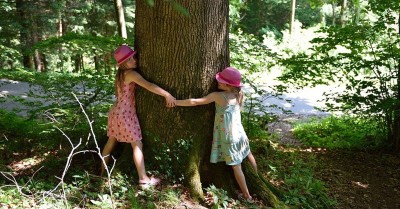
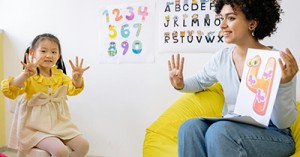
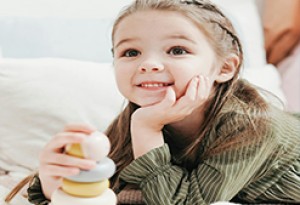
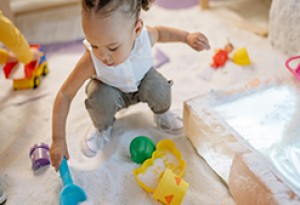

 Toddlers have a greater understanding of the world around them by this stage. Their cognitive development (also known as intellectual development and thinking skills) continues
Toddlers have a greater understanding of the world around them by this stage. Their cognitive development (also known as intellectual development and thinking skills) continues Infants begin to develop trust when parents begin to fulfil their needs. Such as changing an infant's nappy when needed, feeding on request and holding
Infants begin to develop trust when parents begin to fulfil their needs. Such as changing an infant's nappy when needed, feeding on request and holding Beginning at birth the construction of thought processes, such as memory, problem solving, exploration of objects etc, is an important part of an infant’s cognitive
Beginning at birth the construction of thought processes, such as memory, problem solving, exploration of objects etc, is an important part of an infant’s cognitive Toddlers want to do more on their own and do not like it when you begin to establish limits on their behaviour. Tantrums can become
Toddlers want to do more on their own and do not like it when you begin to establish limits on their behaviour. Tantrums can become Your preschooler is now able to focus their attention more accurately and is less influenced by distractions. The intensity of questions increase as your child
Your preschooler is now able to focus their attention more accurately and is less influenced by distractions. The intensity of questions increase as your child John Dewey is often seen as the proponent of learning by doing – rather than learning by passively receiving. He believed that each child was active,
John Dewey is often seen as the proponent of learning by doing – rather than learning by passively receiving. He believed that each child was active, Toddler advance and gains new skills in Gross Motor Development milestones achieved throughout earlier years. Co-ordination and challenges that could not be performed before such
Toddler advance and gains new skills in Gross Motor Development milestones achieved throughout earlier years. Co-ordination and challenges that could not be performed before such Erik Erikson developed a psychosocial theory to understand how we each develop our identities through eight stages of psychosocial development from infancy to adulthood. The
Erik Erikson developed a psychosocial theory to understand how we each develop our identities through eight stages of psychosocial development from infancy to adulthood. The At this point preschoolers begin to interact effectively with others. Play becomes more innovative and organized and “boyfriend” or “girlfriend” begins to emerge. Preschoolers have
At this point preschoolers begin to interact effectively with others. Play becomes more innovative and organized and “boyfriend” or “girlfriend” begins to emerge. Preschoolers have From now, babies begin to identify and respond to their own feelings, understanding other's feelings & needs and interact positively with others. A baby's social and
From now, babies begin to identify and respond to their own feelings, understanding other's feelings & needs and interact positively with others. A baby's social and